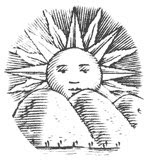Sunday, November 25, 2007
Eddie Cantor Of Eldridge Street (and PS 1)
There are entertainers from the 20's, and 30's, etc whose achievements, to me are timeless, i.e. Irving Berlin, the Gershwins, the Marx Brothers, Louis Armstrong, Cab Calloway, Benny Goodman, Mildred Bailey, Bing Crosby, the Ritz Brothers, etc. Honestly, I don't quite "get" Eddie Cantor and to a lesser degree Durante.
Eddie Cantor (January 31, 1892 - October 10, 1964) was an American comedian, singer, actor, songwriter. Known to Broadway, radio and early television audiences as Banjo Eyes, this "Apostle of Pep" was regarded almost as a family member by millions because his top-rated radio shows revealed intimate stories and amusing antics about his wife Ida and five children.
Cantor was born Israel Iskowitz[1] in New York City, the son of Russian-Jewish immigrants, Meta and Mechel Iskowitz. His mother died of lung cancer two years after his birth, and he was abandoned by his father, left to be raised by his grandmother, Esther Kantrowitz. A misunderstanding when signing her grandson for school gave him her last name of Kantrowitz (later Americanized to "Cantor") instead of Iskowitz. He adopted the first name Eddie when he met his future wife, Ida Tobias, in 1903, because she liked the idea of having a boyfriend named Eddie. The two married in 1914 and remained together until Ida died in 1962.
By his early teens. Cantor began winning talent contests at local theaters and started appearing on stage. One of his earliest paying jobs was doubling as a waiter and performer, singing for tips at Carey Walsh's Coney Island saloon where a young Jimmy Durante accompanied him on piano.
In 1907, Cantor became a billed name in vaudeville. In 1912 he was the only performer over the age of 20 to appear in Gus Edwards' Kid Kabaret, where he created his first blackface character, Jefferson. Critical praise from that show got the attention of Broadway's top producer, Florenz Ziegfeld, who gave Cantor a spot in the Ziegfeld rooftop post-show, Midnight Frolic (1916).
[edit]Broadway and recordings
A year later, Cantor made his Broadway debut in the Ziegfeld Follies of 1917. He continued in the Ziegfeld Follies until 1927, a period considered the best years of the long-running revue. For several years Cantor co-starred in an act with pioneer African-American comedian Bert Williams, both appearing in blackface; Cantor played Williams's fresh-talking son. Other co-stars with Cantor during his time in the Follies included Will Rogers, Marilyn Miller, and W.C. Fields. He moved on to stardom in book musicals, starting with Kid Boots (1923), Whoopee! (1928) and Banjo Eyes (1940).
Cantor was one of the era's most successful entertainers, but the 1929 stock market crash took away his multi-millionaire status and left him deeply in debt. However, Cantor's relentless attention to his own earnings in order to avoid the poverty he knew growing up caused him to search quickly for more work, quickly building a new bank account with his highly popular, bestselling book of humor and cartoons about his experience, Caught Short! A Saga of Wailing Wall Street in "1929 A.C.
Cantor also bounced back in movies and on radio. Cantor had previously appeared in a number of short films (recording him performing his Follies songs and comedy routines) and two features (Special Delivery and Kid Boots) in the 1920s, and was offered the lead in The Jazz Singer when that was turned down by George Jessel (Cantor also turned it down, so it went to Al Jolson), but he became a leading Hollywood star in 1930 with the film version of Whoopee!. Over the next two decades, he continued making films until 1948, including Roman Scandals (1933), Ali Baba Goes to Town (1937) and If You Knew Susie (1948).
Subscribe to:
Post Comments (Atom)























No comments:
Post a Comment